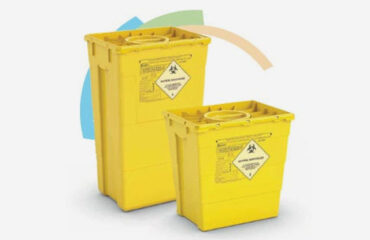The Ultimate Guide To Reclaim Waste
The Ultimate Guide To Reclaim Waste
Blog Article
Reclaim Waste for Beginners
Table of ContentsSome Known Questions About Reclaim Waste.Things about Reclaim WasteReclaim Waste Things To Know Before You BuyGet This Report about Reclaim WasteLittle Known Questions About Reclaim Waste.
Residential sewage waste refers to the waste and items from a domestic septic container. The appropriate monitoring and disposal of residential sewer waste require liquid waste to be moved to a sewage treatment plant where the appropriate approaches and devices are used to purify and dispose of waste.
Industrial waste frequently consists of prospective threats, such as combustible products or a mixture of liquid and solid waste items, and requires an advanced and in-depth disposal process. The disposal of business waste usually includes the filtering of waste prior to transport to guarantee risk-free and correct disposal. Industrial waste is produced from by-products and drainage of commercial procedures and manufacturing.
This kind of waste can not use the same sewer monitoring transportation or processes as septic or commercial liquids. The commercial waste management process calls for the assessment and testing of fluid waste before it undergoes the disposal process (liquid waste removal melbourne). Overflow waste is the liquid waste that comes from runoff and excess stormwater in highly populated locations or cities
Runoff waste can create contamination and flooding otherwise handled appropriately. Find out more concerning sewage system cleaning and waste management. Making certain correct waste administration can avoid disasters and reduce ecological damage. Both individuals in household settings and specialists in commercial or production sectors can gain from recognizing the procedures and laws of fluid waste management.
The 5-Second Trick For Reclaim Waste
Get in touch with PROS Services today to learn more about our waste management and disposal services and the correct means to take care of the fluid waste you produce.
(https://www.edocr.com/v/pd6avrzq/leonaube33101/reclaim-waste)Do you understand what occurs to your water when you end, flush the commode or drain the washing machine? No? Well, it deserves knowing. This supposed 'wastewater' is not only a vital source but, after treatment, will be released to our land, rivers or the ocean. Utilized water from bathrooms, showers, bathrooms, kitchen area sinks, washings and commercial processes is referred to as wastewater.

water used to cool equipment or clean plant and devices). Stormwater, a form of wastewater, is drainage that streams from agricultural and city areas such as roofings, parks, yards, roads, courses and gutters into stormwater drains pipes, after rainfall. Stormwater streams neglected straight to regional creeks or rivers, at some point reaching the ocean.
Rumored Buzz on Reclaim Waste
In Queensland, many wastewater is dealt with at sewer treatment plants. Wastewater is moved from residential or commercial websites through a system of sewage systems and pump terminals, understood as sewage reticulation, to a sewer treatment plant.
The Department of Natural Resources suggests neighborhood governments about managing, operating and keeping sewage systems and therapy plants. In unsewered locations, regional governments might require householders to mount individual or house sewage treatment systems to deal with domestic wastewater from toilets, kitchens, restrooms and laundries. The Department of Natural Resources authorises making use of family systems when they are proven to be reliable.
In some new subdivisions, treatment of some stormwater to get rid of clutter, sand and crushed rock has actually started making use of gross toxin catches. Wastewater treatment happens in 4 stages: Eliminates solid matter.
Wastewater then moves right into huge tanks where solids settle and are removed as sludge. Grease and residue are skimmed from the surface. Makes use of small living organisms understands as micro-organisms to damage down and remove remaining dissolved wastes and great particles. Micro-organisms and wastes are incorporated in the sludge. Eliminates nitrogen and phosphorus nutrients that could create algal blooms in our rivers and endanger aquatic life.
The Definitive Guide for Reclaim Waste
Nutrient elimination is not available at all sewer therapy plants due to the fact that it calls for pricey specialised tools. Clear fluid effluent produced after therapy might still contain disease-causing micro-organisms - liquid waste disposal melbourne.

Most wastewater streams right into the sewerage system. Under the Act, neighborhood federal governments administer authorizations and licences for environmentally pertinent tasks (ERAs) including wastewater releases that may have a regional effect.
5 Easy Facts About Reclaim Waste Shown
Surveillance offers factual details regarding water high quality and can confirm that permit conditions are being met. The information gotten with surveillance offers the basis for making water quality decisions.
Report this page